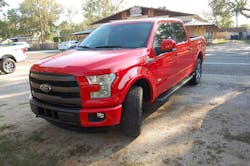Big growth predicted for start/stop engine systems
Some 55% of light vehicles sold worldwide are expected to feature fuel-saving start/stop engine technology nine years hence, according to new analysis by consulting firm Navigant Research, up from just 22% this year.
“The basic stop-start system is gradually evolving into one piece of a multi-faceted approach to improving fuel economy in light duty vehicles,” noted David Alexander, Navigant’s senior research analyst, in the firm’s new Stop-Start Vehicles report
“This is spurring the development and implementation of ancillary systems, such as air conditioning, power steering, and brake assistance, that are only activated when required, rather than being a small but constant drain on engine output,” he explained.
Alexander added that stop/start systems automatically shut engines off instead of allowing them to remain at idle when a vehicle is stationary. The technology then quickly restarts the engine when it is time to resume driving.
“Start/stop systems are here to stay,” noted Fred Padgett, group product manager-rotating rachines for Robert Bosch LLC Automotive Aftermarket NA, in comments earlier this year.
“Start/stop systems … save fuel even during short stops, after just 0.7 seconds,” he added. “This results in up to 8% saving in fuel economy overall compared to vehicles with conventional engines,” he added.
Navigant pointed out that “smoother and faster operation” is the key to gaining broader consumer acceptance for stop/start systems in the North American market.
